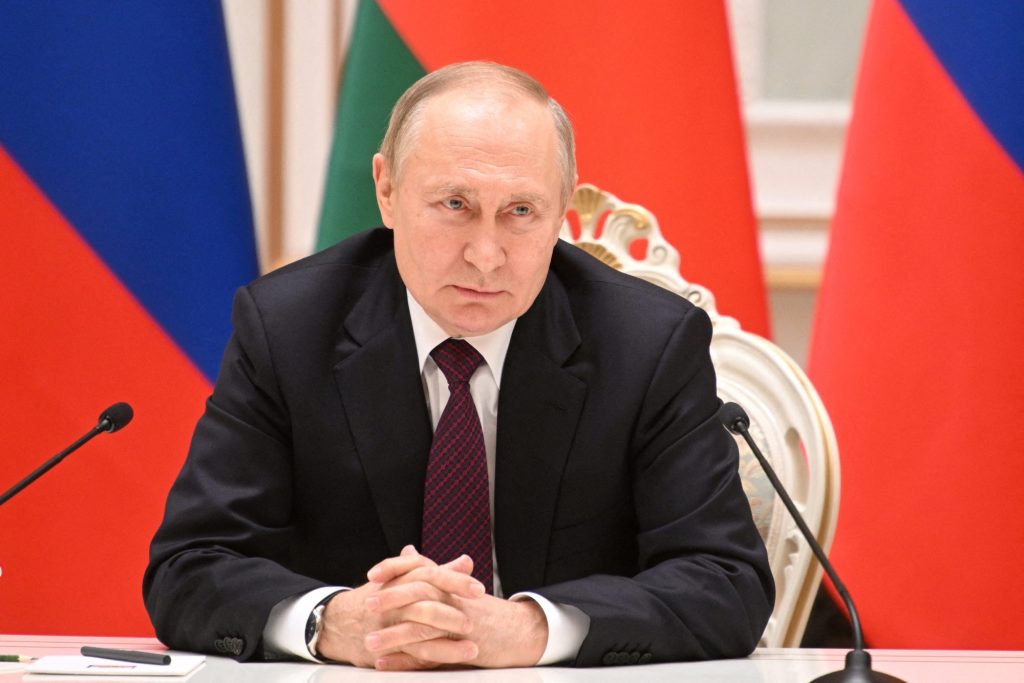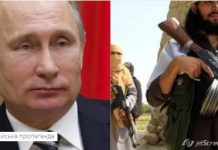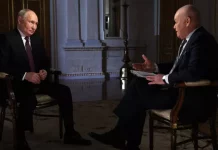By Benton Coblentz, for UkraineAlert
As the Russian invasion of Ukraine approaches the ten-month mark, various commentators in the West continue to push the idea that Ukraine should trade territory for peace. However, Russia’s long history of imperial expansion provides a sobering lesson for these advocates of appeasement. Far from guaranteeing peace, any compromise with the Kremlin that allowed Moscow to retain control over parts of Ukraine would position Russia for further acts of international aggression while strengthening Vladimir Putin’s faith in the fundamental weakness of the West.
Supporters of a land-for-peace deal tend to portray themselves as foreign policy realists but the policies they promote amount to an unsustainable partition of Ukraine that would almost certainly lead to more war. Such concessions would also risk empowering Putin’s vision of a return to the eighteenth and nineteenth-century diplomacy of Great Power imperialism.
A brief look at the history of Russia’s imperial expansion in Ukraine and the surrounding neighborhood is enough to demonstrate that offering the Kremlin land in exchange for peace is unlikely to work. For hundreds of years, Russia has expanded its territory by waging wars to weaken without necessarily overwhelming or annexing its neighbors. Slowly but surely, these neighbors would be reduced to vassal status or incorporated entirely into the empire.
The eighteenth-century Partition of Poland in particular should give pause to those currently advocating a twenty-first-century partition of Ukraine. This gradual destruction of the Polish state was achieved in partnership with a number of leading European powers and allowed Russia to significantly expand its presence in Europe.
The Russian Empire’s conquest of Ukraine followed a similar pattern. The territories of modern-day Ukraine were gradually seized from Poland and the Ottoman Empire over a period of many decades. The bulk of Ukrainian lands were annexed between the 1650s and 1790s, but it was not until 1945 that all of today’s Ukraine was incorporated into the Soviet Union.
Russian President Vladimir Putin makes no secret of the fact that he sees the current invasion of Ukraine as a modern continuation of the wars of imperial expansion waged by Russian rulers Peter the Great and Catherine the Great hundreds of years ago. Indeed, he appears to relish such comparisons. The Kremlin has made this link explicit by resurrecting the Czarist-era name of “Novorossiya” (“New Russia”) for the territories of Ukraine it seeks to incorporate into the Russian Federation.
When he launched the full-scale invasion of Ukraine in early 2022, Putin’s ultimate objective was to return the whole of Ukraine to the Russian sphere of influence. However, that does not mean that anything less would be considered a defeat. Indeed, the kind of peace plans currently being proposed by those championing concessions to the Kremlin would be regarded as anything but defeat in Moscow. If Russia is allowed to legitimize its control over even a small part of Ukraine’s sovereign territory, this would be interpreted as a major victory and seen as a green light to push further.
A compromise peace that ceded land to Russia would vindicate Putin’s policies of imperial aggression in the eyes of the Russian public and among international audiences. It would place Russia in a strong position to plot its next invasion while condemning an entire generation of Ukrainians to live either under Russian occupation or in the shadow of war.
Nor would other countries be safe. If Putin is able to achieve his imperial goals in Ukraine, there is every reason to assume he would then proceed with new campaigns of conquest elsewhere against nations in Eastern Europe, the Southern Caucasus, and Central Asia that were formerly part of the Russian and Soviet empires. A peace deal that allows Putin to position himself as the heir to Peter the Great will certainly not discourage him from such ambitions.
Clearly, all efforts to end the war in Ukraine are welcome. However, talk of compromising with the Kremlin is dangerous because it risks validating Putin’s imperial delusions while encouraging Moscow to believe Western resolve may be faltering. At this critical stage in the war, Ukraine’s international partners must not pressure the country to accept peace on Russian terms. Instead, they should continue to clarify that the decision to enter negotiations can only be made in Kyiv.
Rather than fueling speculation over possible concessions, Western commentators and policymakers should focus on making sure Ukraine is supplied with all the weapons it needs to defend its territory. A sufficiently armed Ukraine with the unwavering support of a formidable international coalition will be able to negotiate on its own terms from a position of strength. This is the only route to a settlement that will be truly sustainable. In order to secure peace in Europe, Putin must be decisively defeated. Without such a defeat, the centuries-long pattern of malign Russian imperial influence will continue and other European countries will face the fate of Ukraine.
By Benton Coblentz, for UkraineAlert
Benton Coblentz is a program assistant at the Atlantic Council’s Eurasia Center.





